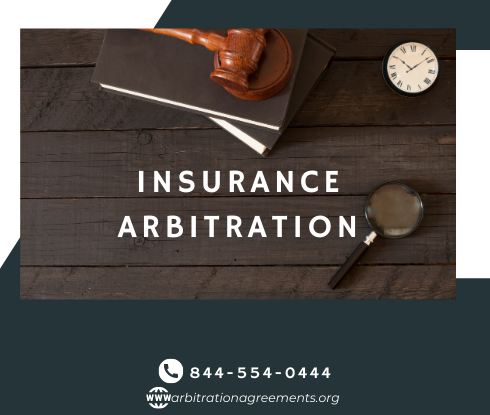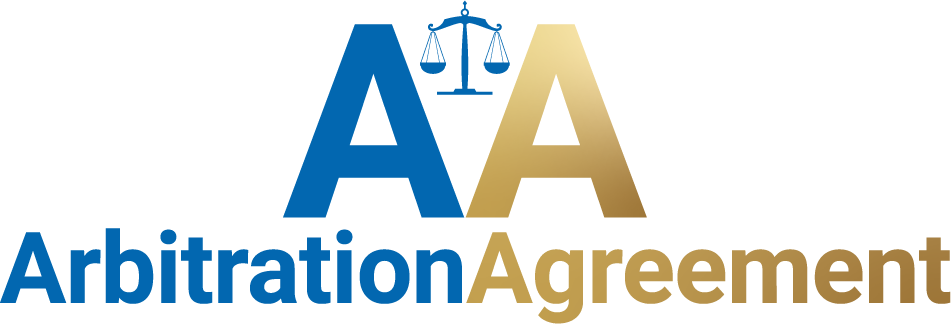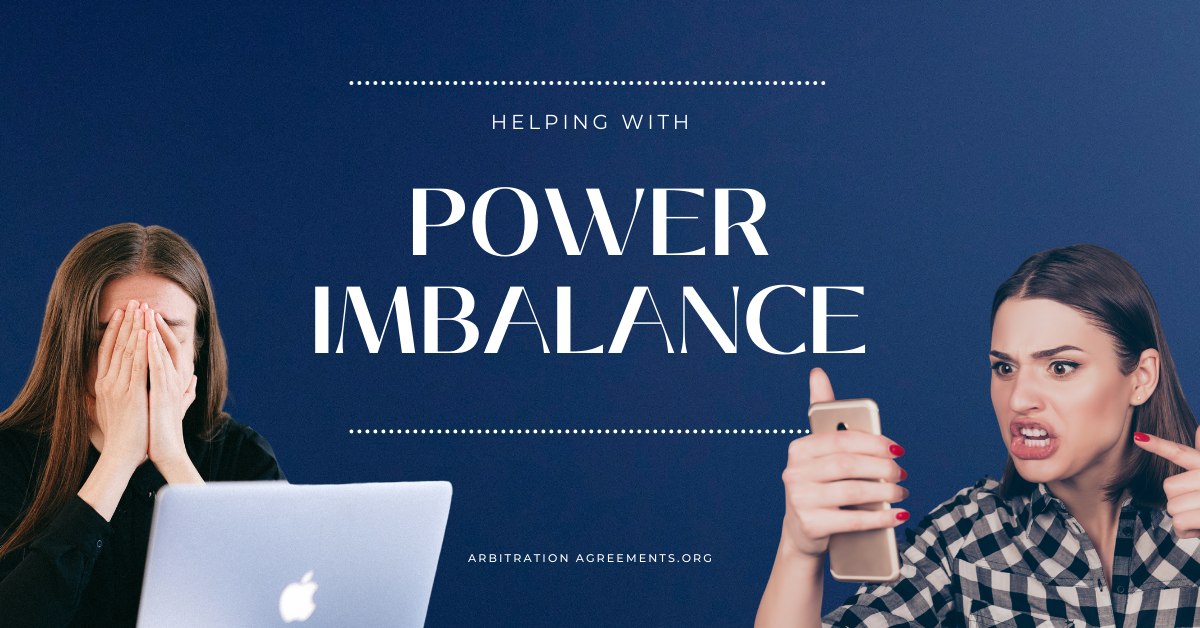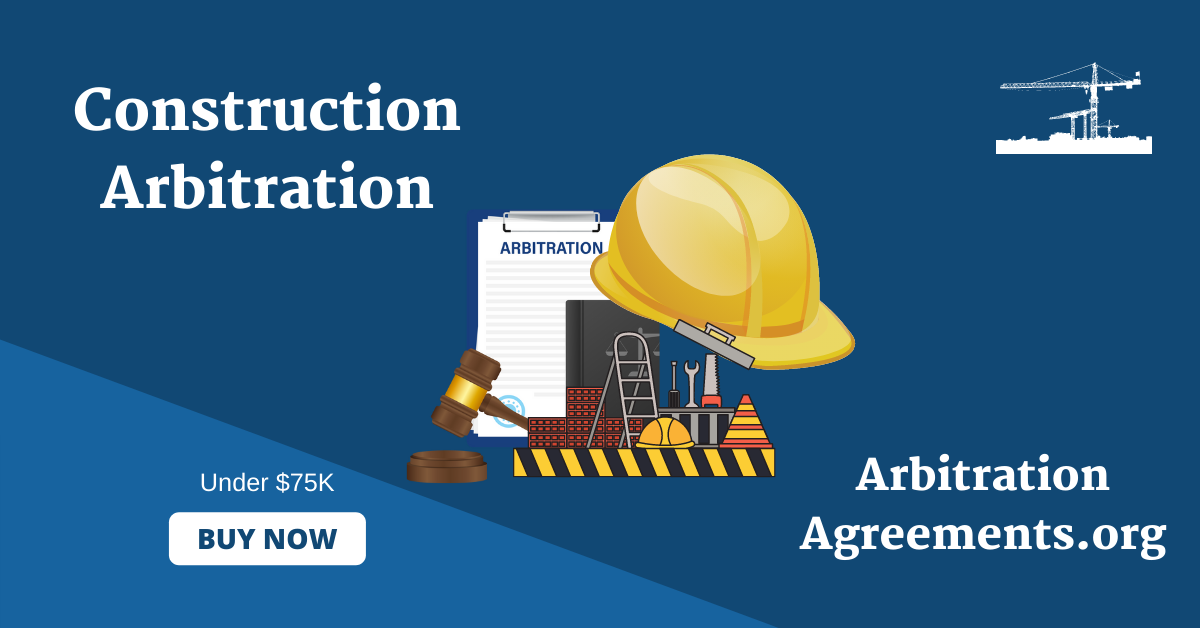How Insurance Arbitration Functions
Insurance arbitration functions as an alternative to going to US court. Any form of arbitration serves as a fast way to resolve a business dispute. A neutral third party will get brought in to help settle the matter. That third party refers to an arbitrator. Insurance arbitration substitutes the process of taking any case to court. During insurance arbitration, both parties present cases to the arbitrator. An arbitrator is sometimes one person and sometimes a panel of individuals.
The arbitrator gets tasked with making a decision based on facts related to each case.
The resulting judgment gets referred to as the arbitration award. An award functions as a legal, binding resolution. It relates to the arbitrator’s decision about damage and fees. Once a party receives an award, the arbitration case is over. Parties cannot appeal an insurance arbitration decision. (Or any arbitration decision for that matter.) Let’s continue going over the basics of insurance arbitration. Read also Arbitration Provision

The Insurance Arbitration Process Is Fast
Arbitration vs Litigation . About all arbitration cases get resolved faster than if the cases were in litigation. And insurance arbitration is no exception. Courtroom proceedings related to insurance claims can drag on for months. Most arbitration hearings conclude in about a week or so. Sometimes they can even get resolved in one day. But keep in mind that the entire arbitration process lasts a few months on average. That’s because parties, like insurance companies, have to prepare for arbitration.
Another key advantage of insurance arbitration is that it is cheap.
At least, it’s less expensive than going to a US court. Insurance companies also love that arbitration results never go on public record. This way, companies get some level of guaranteed privacy. The confidential nature of arbitration draws in many insurance organizations. Read here Mediation and Arbitration
Who Is the Arbitrator in an Insurance Case?
An arbitrator is either a person or panel from an arbitration organization. This applies to insurance disputes and all other forms of disputes. An arbitrator functions as an independent entity. He or she cannot have any affiliations to an insurance company or the other party.
Sometimes the involved parties opt to select an arbitration organization as arbitrators.
(Please let us know if you would like to receive a list of these arbitration organizations.) During insurance arbitration, parties can represent themselves. Or, they can hire an attorney to present a case.
Binding vs Non-Binding Insurance Arbitration
What is binding arbitration? It’s when the parties agree that an arbitration award cannot get appealed. This agreement often takes place within signed contracts featuring clauses. Through binding arbitration, US courts cannot overturn the decision of arbitrators. Why? Because the insurance company and other party already have an agreement in place.
The non-binding arbitration process functions in the same manner as binding arbitration meaning .
But there is one key difference. Both parties maintain control of how the dispute gets resolved. This means that an insurance company (or the other party) can reject an award. Then, the case can proceed to court. Very few insurance companies use non-binding arbitration terms. That’s because their mission is to avoid settling a dispute in court.
What is Binding Arbitration Definition ?
Mandatory vs Voluntary Insurance Arbitration
An insurance contract can contain clauses related to mandatory arbitration. This means that arbitration becomes the only outlet to resolve a dispute. Say that a customer signs an insurance contract. He or she might have agreed to mandatory arbitration by signing it.
Insurance organizations almost never pursue voluntary arbitration.
Why? Because they want to control how insurance customers can resolve disputes. And their mission is to get disputes resolved outside of court.
Most insurance companies seek mandatory arbitration .

The Arbitration Process in Business Insurance
Arbitration can settle all sorts of insurance disputes. The disputes often take place between a policyholder and an insurance provider. Arbitration replaces the act of filing a lawsuit. Instead, the insurer and a policyholder present their cases in arbitration.
An arbitrator examines the facts and evidence.
Then, the arbitrator announces an official decision that resolves the dispute. The outcome could mean that the insurance provider has to pay for damages. (A provider might have tried to deny the policyholder coverage.) Or, a policyholder could have to compensate for damages. Those damages might not have gotten featured in the specific insurance policy.
Example of Arbitration Related to an Insurance Claim
Say that it is hurricane season. A tree falls on top of a policyholder’s office. The front window is now broken. This policyholder does not want to pay for the cost of a new window. He believes the cost should get covered by the business’ general liability policy. The insurer then rejects the policyholder’s claim. The insurance company states that hurricane damage wasn’t featured in the policy. Next, the policyholder reviews the insurance contract. It reads that arbitration’s mandatory when there’s a disagreement. The policyholder and insurer have already agreed to binding arbitration terms. They then begin the arbitration process. An arbitrator decides that the insurer isn’t responsible. Thus, the insurer doesn’t not have to pay for the damages. This arbitration decision has binding status. The policyholder must now pay the expenses for repairing the office window.
Insurance Arbitration Can Benefit Both a Provider & Policyholder
When it comes to the basics of arbitration, both parties in a dispute receive benefits. After all, US federal courts can take years to get cases resolved. Plus, court delays can take a large-sized toll on insurance businesses. Sure, they have to pay legal fees. But they also have to commit to spending a lot of time resolving a dispute. A recent study found that US court cases take about a year longer than arbitration. But that’s not all.
Say that a case goes through the appeal process of US district court. That can take about two years longer than arbitration. Given this time frame, it’s no surprise why insurance organizations prefer arbitration.
Arbitration gives insurance providers and policyholders many advantages.
So, what is the biggest advantage for insurance arbitration? Speed. Insurance arbitration is so much faster than litigation. Disputing parties can reach an agreement within weeks or months. And they’ll do so while saving a lot of money.
Are you planning on signing a contract through an insurance provider?
If so, try to find a clause that references arbitration. The clause should describe how a potential insurance disagreement can get resolved. Speaking of an arbitration clause…
What Is an Arbitration Clause?
You can find arbitration clauses in almost all business insurance policies. This applies to both general liability and commercial auto insurance. Worker’s compensation can also relate to arbitration clauses. An arbitration clause is at least one paragraph long. It gets featured within each insurance policy.
A clause will state that both parties must settle differences outside of a US courtroom.
Instead of litigation, the insurance company and other party will go through arbitration. But not non-binding arbitration. (Unless in some states or under rare conditions.) The arbitration process should have binding status. Visit Forced Arbitration
Do All Insurance Policies Feature Arbitration Clauses?
No, not all insurance companies use binding arbitration. Each insurance company features different language within insurance policies. Some states even ban insurance companies from using binding arbitration clauses. These states include Kentucky, Washington, and Virginia.
Arbitration Clauses Protect Insurance Companies
Not everyone likes taking part in the processes associated with arbitration. But keep in mind it does protect both the customer and insurance company. An arbitration clause focuses on reducing high claim costs.
US court trials can make all involved parties have to pay a lot of money.
Arbitration clauses position insurance companies to keep costs low. This way, they won’t have to raise their rates every year. Insurance arbitration also reduces the amount of publicity associated with each claim. Insurance businesses do not want any part in experiencing a negative spotlight. Otherwise, they could lose a lot of revenue in a short amount of time.
The key is for you to review your business insurance policy right now.
This way, you can figure out if there’s an arbitration clause. Why does this matter? Because you’ll know what to expect if you have to file a claim. Also, you might want to research your state’s laws. Focus on how state courts handle arbitration clauses for companies. This will help you know your arbitration rights. Please contact our organization if you need help looking up arbitration information. Must read here: Federal Arbitration Act
The Timeline & Insurance Process of Car Accident Arbitration
Say that you receive a car insurance carrier’s final settlement offer. But the offer is lower than the figure that you requested. You believe your claim is worth a lot more money. So, what should you do? Many car insurance policies allow people to resolve disputes through arbitration. This saves time and money compared to battling insurance businesses in court. Plus, it is less formal of a process.
Through arbitration, you and your car insurance company can present claim information.
The arbitrator will analyze that information. Then, the arbitrator will present you with an arbitration award. That award will have a binding status. Neither you or the car insurance company can appeal the arbitration award. Say that you live within a no-fault insurance state. You might have to arbitrate the car accident settlement disagreement. The key is to read over your insurance policy. This way, you can learn if car accident arbitration is an option.
Do You Need Help Dealing With Insurance Arbitration? Let Us Know
Taking part in insurance arbitration never sounds fun for anyone. But that doesn’t mean it has to feel difficult and stressful. Relieve your worries by contacting our organization today. Our experts can address any questions related to arbitrating insurance disputes. Plus, they can empower you by providing high-quality tools and resources. No matter the terms of your dispute, we’re only one phone call away.









